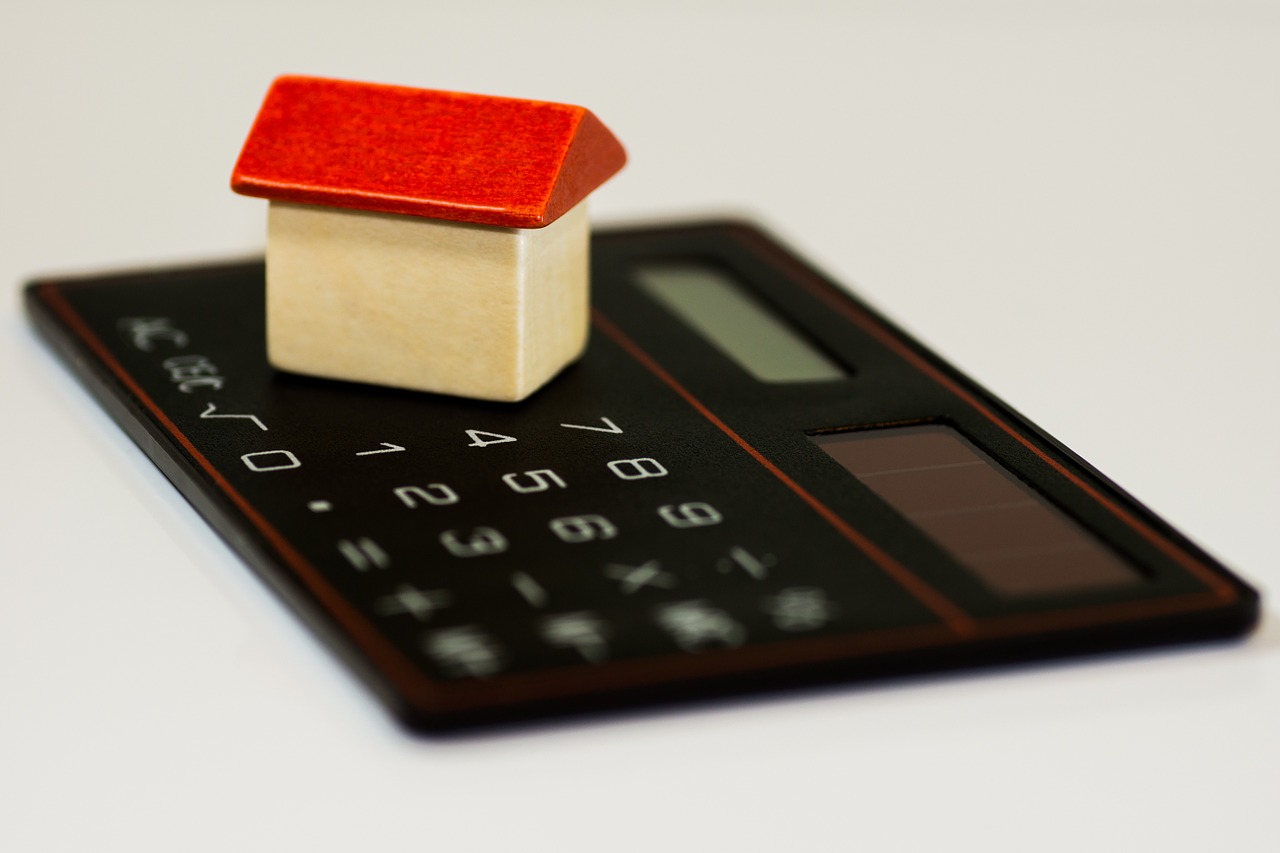Do You Need a Permanent Job To Get a Mortgage?
In order to get a mortgage, you will need to demonstrate that you have sufficient funds to meet mortgage repayments. This can be more difficult without a permanent job but it is not impossible.
How Can You Get a Mortgage Without a Permanent Job?
It can be difficult to secure a mortgage without a permanent job; however, the mentality surrounding what constitutes a “permanent job” is changing, with more freelance roles than ever before. Mortgage lenders are following suit and many are starting to change what they accept as proof of income.
As with any loan, the factor that mortgage lenders are most concerned with is whether or not you can demonstrate income stability. Regardless of what your job situation is, you should be able to provide evidence to a lender that you have a fairly stable income source and have had that same source for a minimum of two years.
Part-time employment, self-employment and freelance jobs could all be acceptable forms of income source as long as you are able to demonstrate employment history and sufficient income to meet mortgage obligations.
Can You Get a Mortgage if You Are Unemployed?
Taking out a mortgage if you are not currently in permanent employment can be an uphill battle. Lenders invariably look at a borrower’s income or annual salary in order to assess how much money they are willing to loan.

However, some mortgage providers are more flexible than others in how they define “income” and it may not mean a permanent job. In this scenario, lenders may accept freelance income, self-employment payment stubs, savings accounts or even benefits as long as you can prove that your monthly income is sufficient to meet payments.
If you are fully unemployed, it is far more difficult to be approved for a mortgage, especially if you do not have good credit history and cannot provide a high down-payment. No-income loans, including mortgages, usually incur far higher interest rates and typically permit you to borrow less money.
Is It Possible To Get a Mortgage When on Universal Credit?
Applying for a mortgage whilst you are on Universal Credit is not a good idea as, although some lenders will accept this as a form of income, it is far more difficult to secure a mortgage under these conditions. However, if you are on Universal Credit with a pre-existing mortgage, you may be able to get assistance with mortgage payments but only if you have been claiming it for more than 39 weeks consistently.
How Can You Qualify for a Mortgage if You Do Not Have a Permanent Job?
Those who are applying for a mortgage whilst not in permanent employment will need to demonstrate some source of regular income which could include savings. Lenders will most likely also require good credit history. Regardless of your job situation, be it voluntary or involuntary unemployment, part-time employment, freelance or self-employed, you will need to prove to any lender that you can make regular payments on time.
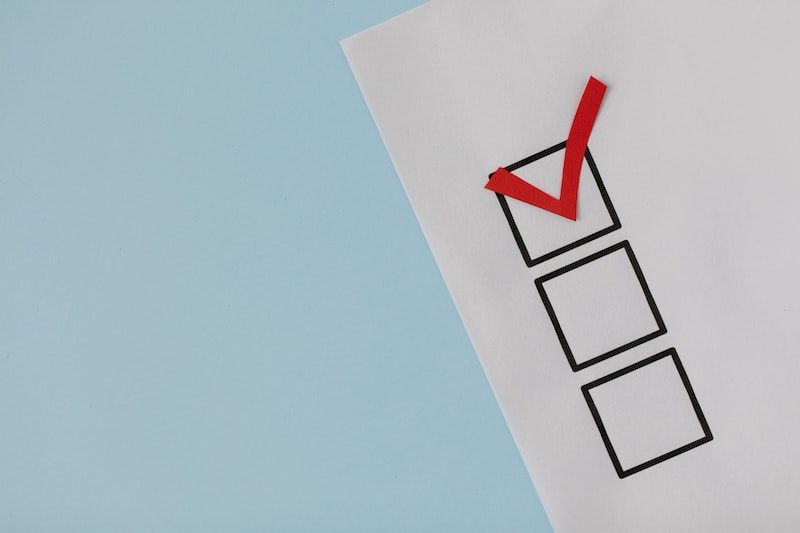
One way that you may be able to qualify for a mortgage whilst unemployed is by having a co-signer which could be a trusted relative, spouse or friend. The chosen co-signer will need to be employed or have a high net worth. The presence of co-signers means that the mortgage is less risky for the lender as they are securing the loan with their income and credit history.
Is It Possible To Get a Mortgage Whilst on Benefits?
If you are currently receiving benefits for unemployment, it is highly improbable that your lender can use this as evidence to qualify for a home loan. Often, lenders require you to prove a minimum of two years of income from a reliable source.
However, if you are receiving benefits you may still be able to get a mortgage under the right circumstances. This will depend on many variables including credit history and alternative sources of income.
If you have a regular source of income, assets or savings, in addition to the money you are receiving through benefits, you are more likely to have your application approved.
For lenders, their biggest concern is whether or not a borrower is able to meet their monthly mortgage obligations. Thus, if the benefits are sufficient to meet payments, and borrowers can demonstrate an otherwise satisfactory financial profile, lenders may indeed approve the mortgage.
Before putting in a loan application, you should check whether the lender accepts benefits as a valid source of income as an unsuccessful application could negatively impact your credit score. Working with a mortgage advisor could help you find a lender who is best suited to your personal circumstances.
How Can I Demonstrate Mortgage Eligibility if I Don’t Have a Job?
In order to take out a loan when you are unemployed, you will still need to demonstrate how you will be able to meet repayments and show lenders that you have a solid credit history.
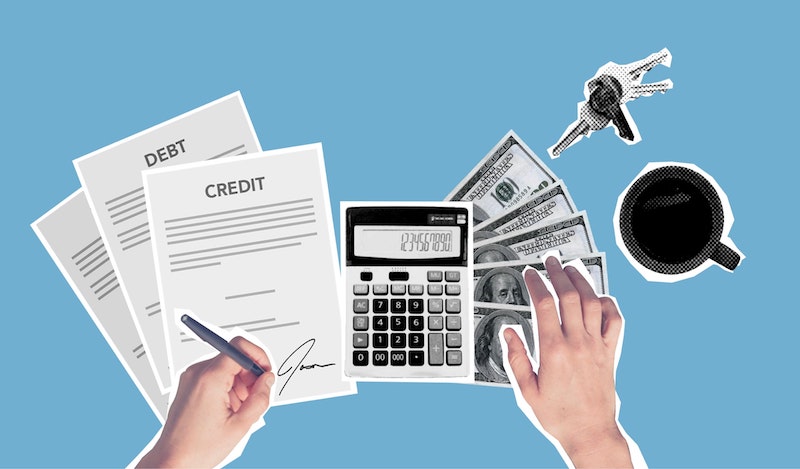
If you are not able to prove full-time employment, you will most likely need to share the following information:
- Any missed utility bill payments
- Current available credit
- If you have previously been declined for loans and how many times
- Whether you are on the electoral roll
Lenders will only accept mortgage applications from unemployed individuals if they can assure that you are able to meet your mortgage payments. If you can show that you are able to make timely payments and can responsibly manage outgoing payments, you will be more likely to be approved for a mortgage.
Do You Need a Full-Time Job To Get a Mortgage?
It is possible to get a mortgage without a full-time job but you will need to demonstrate to any mortgage providers that you can afford mortgage repayment with the income that you have.
Can You Get a Mortgage if You Are Unemployed?
If you are looking to take out a mortgage, and are not currently in full-time employment, it may prove difficult. Lenders typically look at a borrower’s income or annual salary in order to assess how much money they are willing to loan.

However, some mortgage providers are more flexible than others in how they define “income” and it may not mean a full-time job. If this is the case, these lenders may accept freelance income, savings accounts or even benefits as long as you can prove that your monthly income is sufficient to meet payments.
If you are unemployed, you might find it very difficult to secure a mortgage without an exemplary credit history and the ability to offer a high down-payment. Beware of no-income mortgages which may come with much higher interest rates and reduced borrowing power.
Is It Possible To Get a Mortgage When on Universal Credit?
It may be difficult to secure a mortgage on Universal Credit. However, if you are on Universal Credit with a pre-existing mortgage, you may be able to get assistance with mortgage payments but only if you have been claiming it for more than 39 weeks consistently.
How Can You Qualify for a Mortgage if You Do Not Have a Full-Time Job?
If you are applying for a mortgage and cannot prove employment, you will need to be able to demonstrate some source of regular income which could include savings. Lenders will also require a good credit history. Regardless of whether you are unemployed by choice, such as taking retirement, or have lost your job, you will need to prove to any lender that you can make regular payments on time.

One way that you may be able to qualify for a mortgage whilst unemployed is by having a co-signer; this might be a relative, spouse or friend. This co-signer will need to be employed or have a high net worth. Co-signers make the mortgage less of a risk for the lender as they are securing the loan with their income and credit history.
Is It Possible To Get a Mortgage on Benefits?
If you are currently receiving benefits, it is unlikely that your lender can use your unemployment income in order to qualify for a home loan. More often than not, lenders require you to prove a minimum of two years of income from a reliable source.
However, if you are receiving benefits it may still be possible to get a mortgage under the right circumstances. This will be contingent on many variables including credit history and alternative sources of income.
If you have a regular source of income, assets or savings, in addition to the money you are receiving through benefits, you are more likely to have your application approved.
For lenders, their biggest concern is whether or not a borrower is able to meet their monthly mortgage obligations. Thus, if the benefits are sufficient to meet payments, and borrowers can demonstrate an otherwise satisfactory financial profile, lenders may indeed approve the mortgage.
Before putting in a loan application, you should check whether the lender accepts benefits as a valid source of income as an unsuccessful application could negatively impact your credit score. Working with a mortgage advisor could help you find the right lender and best deal for your personal circumstances.
Alternatives to Full-Time Employment
In today’s working landscape, mortgage providers tend to be more flexible about what they define as full-time employment. With self-employment, freelancing and the gig economy becoming more prevalent across the UK, there are more options available when demonstrating your income.

The most important thing that lenders want to see is income stability. Whether or not you have a regular employer, your objective should be to demonstrate that you have a fairly stable income and that this has been consistent for at least two years. Whether you have a part-time job, a freelance stint or are working from gig to gig, lenders will want to see that you can demonstrate employment history and enough income to meet mortgage repayments.
How Can I Demonstrate Eligibility for a Mortgage if I Have No Job?
In order to take out a loan when you are unemployed, you will still need to demonstrate how you will be able to meet repayments and show lenders that you have a solid credit history.
If you are unable to prove employment, you will most likely need to share the following information:
- If you have missed any utility bill payments
- How much credit you currently have available
- If you have previously been declined for loans and how many times
- If you are on the electoral roll
Lenders will only accept mortgage applications for the unemployed if they can be sure that you are able to meet monthly repayments. Demonstrating that you are able to make payments on time and can manage debt in a responsible manner will make you more likely to qualify for a loan.
Can I Get A Mortgage On Benefits?
Those on benefits may find it more difficult to get a loan, but there are still various options available if they are in need of funds.
Is It Possible To Get a Mortgage on Benefits?
If you are receiving benefits it is still possible to get a mortgage under the right circumstances. This will depend on many different factors including credit history and alternative sources of income.

You are more likely to have your mortgage application approved if you have a regular source of income or assets in addition to the money you are receiving through benefits.
The biggest concern for lenders is proving that a borrower is financially stable enough to meet the mortgage payments. For that reason, many lenders have no problem accepting benefits as a source of income as long as their monthly income is sufficient to meet payment obligations.
It should be noted that not all lenders will accept benefits so it is worth doing your homework before putting in a loan application. If the majority of your income is made up of benefits, it may be worth seeking a specialist mortgage lender.
Which Benefits Are Accepted by Mortgage Lenders?
Not all benefits will be accepted by lenders and eligibility may vary between lenders. Here are just some of the benefits that mortgage lenders tend to accept:
- Attendance Allowance benefit
- Carer’s Allowance benefit
- Child’s benefit
- Disability Living Allowance (DLA)
- Maternity Allowance benefit
- Pension Credit benefit
- Widow’s Pension benefit
- Working tax credit benefit
Within this, lenders may accept certain benefits but only as a proportion of income rather than as the full amount of proof of income. Certain lenders may have additional specific criteria that you will need to meet before they accept your benefit.
Can You Get a Mortgage When on Universal Credit?
You can often get assistance with mortgage payments if you are on Universal Credit but only if you have been claiming it for more than 39 weeks with no breaks and no evidence of earned income within that time.
You will not be eligible for help with mortgage payments on your home if you have received earned income at any point.
Can You Get a Mortgage if You Are Unemployed?
It is possible to apply for a mortgage without an income or a full-time job. However, this will limit the amount of mortgage lenders available to you. The majority of lenders usually ask for a minimum income per month.

That being said, some mortgage providers recognise benefits as a source of income. If that is the case, your lender may approve you for a mortgage while you are on benefits as long as your monthly income is sufficient.
More traditional lenders may only value full-time employment as a source of income and means of proving the affordability of the mortgage.
Which Mortgage Providers Accept Benefits?
Many mortgage providers across the country accept benefits as a valid source of income. However, the list is constantly changing and you should always check first. Working with a mortgage advisor can help find the best mortgage deal to suit your personal needs.
The following banks are among some of those offering mortgages to individuals on benefits:
The mortgage lenders that accept benefits include:
- Abbey
- BM solutions
- Co-operative Bank
- Darlington Building Soc.
- First Direct
- Halifax
- HSBC
- Leeds Building Soc.
- Manchester Building Soc.
- Mortgage Trust
- Nationwide Building Soc.
- Natwest
- Santander
- Scottish Widows Bank
- TBMC
- The Mortgage Works
- TSB
- Virgin Money
Is It More Difficult To Get a Mortgage on Benefits?
It is generally harder to get a mortgage if you are receiving benefits, especially if these benefits make up most of your income. This is because you will need to demonstrate to the lender that you are able to reliably meet payments.
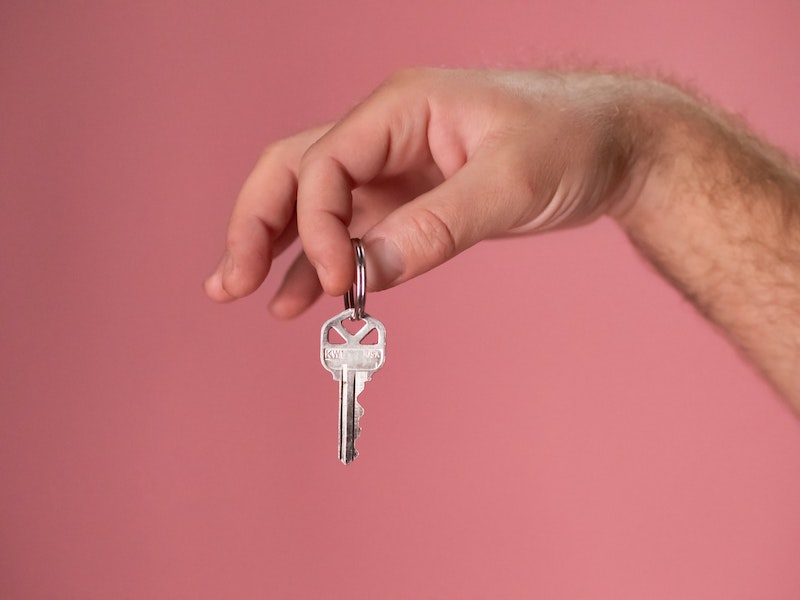
However, if you have a good credit rating and can show that your monthly income is greater than your monthly outgoing payments, this will all support your case and show you to be a reliable borrower.
Claiming benefits will not affect your credit score so from that point of view it will not affect your mortgage application or applying for any future loans. Although, if you are claiming benefits, this is likely due to low income. So, for that reason, the mortgage becomes more difficult to get.
Can I Be on the Title but Not on the Mortgage?
It is possible to be named on the title deed of a property without being on the mortgage. This means that you are not legally obliged to repay the mortgage but you have the right to ownership of the property.
What Does Being on the Title of a House Mean?
A title refers to the real estate title of a property. This is the legal way of expressing who is the rightful owner of a property. Therefore, the person whose name is on the title deed is the legal owner of the property.

Thus, whoever is on the title deed has access to the property and is entitled to make modifications. It also gives this individual (or individuals) the power to transfer the ownership to others.
How Can Someone Be on the Title Deed but Not the Mortgage?
It is possible to be named on the title deed of a home without being included on the mortgage. This arrangement means that the individual is an owner of the home but is not liable for the mortgage repayment. However, if the payments are defaulted, the lender can still foreclose on the home.
The person who is officially an owner of the property but does not have an obligation to repay the loan is sometimes referred to as a “non-obliger” or “non-borrower.”
There are many reasons why a couple might choose to do this. For example, applying for a joint mortgage means that lenders will look at combined income but also an aggregated credit score.
In the case that one person from the couple has a bad credit history, poor employment record or outstanding debts, it could ruin their chances of getting a mortgage. However, it would still be possible for their name to be on the deed regardless of whether or not they are contributing to the mortgage.
Even though you can be on the deeds of the home without being on the mortgage, it is worth noting that many mortgage lenders will not agree to this arrangement.
Can I Sell a House if My Name Is Not on the Mortgage?
Anyone listed on the property title will have full ownership of the home and thus have full rights to sell the property, regardless of whether or not they are on the mortgage.

If You Buy a House as a Couple Under One Name Can Both Spouses Be on the Deed Title?
Even if you choose to buy a house under one name, you can add your spouse to the home’s title after the loan is finalised and become official “co-owners”.
However, the person on the mortgage application will be the sole party responsible for the repayment of the loan.
Listing a spouse as a co-owner on the house title does not signify any legal responsibility for them to assist with the mortgage payments.
Can You Add a Name to a House Title?
Yes, you can add names to a house title to allow for joint ownership of a property. Examples of people that are typically added to a house title include:
- A spouse
- Your child

However, they will need to have an interest or share in the property. In these cases, it is possible that any existing loans will need to be refinanced or modified.
What Rights Do You Have if Your Name Is Not on a Deed?
If multiple people are living in a house and there is only one name on the title deed, the “non-owner” (the party whose name does not appear on the deed) has no legal rights over the property. In this case, it is possible to establish a “beneficial interest”.
Is There a Downside to Putting Multiple Names on a Title Deed?
If there are multiple names on the title deed of a home, especially if the names are of those who are not contributing to the mortgage, it assumes risk of ownership as it means the title is not free and clear.
Do You Need To Be Married To Be Co-Owners of a House?
You can legally co-own a house with someone even if you are not married. Names can be added to the deed even for people who have not signed the mortgage, as long as the lender agrees. However, taking title of a property as an unmarried partner or friend can sometimes be more complicated than a married couple buying a property together.

If you are not married but purchased the house with a partner who is the sole name on the mortgage, you cannot claim the mortgage deduction on your income taxes, even if you contribute to the payment each month.
Can a Name Be Added to the Mortgage?
It is possible to add a person to your mortgage deed, something which is done by contacting the lending company and paying any additional service fees. If someone is added to the mortgage deed and the title deed they will be equally responsible for the repayment of the mortgage and will also have legal rights to the property.
Can a Married Couple Buy a House Under One Name?
Married couples can choose to buy a house under just one name rather than including both spouses on the mortgage. In fact, in certain circumstances it can actually benefits couples to only put down one name in their application.
Here, Octagon Capital explores the ins and outs of only putting one spouse on the mortgage application, including the benefits, disadvantages and important things to look out for in this process.
Do You Have To Apply for a Mortgage With Your Spouse?
It is not necessary to include both spouses on the mortgage application if married couples are buying a house or refinancing their current homes.

In fact, in some cases it could benefit the couple to only include one spouse on the home loan application. For example, choosing the spouse with the better credit score could make it more likely that the couple will be approved for a mortgage.
Benefits of Having One Spouse on the Mortgage
There are many reasons why a married couple may choose to purchase a home using only one spouse’s details, including the following...
- Avoid credit issues
If one person on a joint application has poor or damaged credit history, it can have a negative impact on the entire mortgage application.
When making a joint application, mortgage lenders create a “merged” credit report using the scores of each applicant; they then use the lowest of the two scores in order to evaluate the application.
This lower score is what determines the offer for the lender meaning that if one spouse has a significantly lower credit score, it could ruin the chances of the couple securing a mortgage.
Low credit score could prevent a couple from qualifying for a loan or could lead to higher interest rates.
Typically, credit scores of lower than 580 will be rejected by the majority of lenders. That means that if one spouse has a score of 580 or lower, the other spouse should consider making the application alone.
- Save money on mortgage interest rates
If one spouse of the couple has exceptional credit, it could benefit both partners in the long run as it could save thousands on your home loan.
Applying alone can significantly reduce the mortgage cost and the interest rates incurred. However, this strategy will rely on the individual not only having a high credit score but a high income as it is true that the borrower must qualify for the loan without the help of their spouse’s income.
- Preserve assets
To take out a secured loan, you will typically need to put up collateral in order to mitigate risk for the lender. In many cases, this could be an asset such as your home. This means if you are unable to pay your mortgage, you risk being vulnerable to asset confiscation.
If you buy a house in just your name, you protect your home from creditors in the case that your spouse has outstanding debts such as student loans or unpaid taxes.
- Simplify estate planning
Having the home in one spouse’s name only means that it simplifies estate planning. This is particularly in the case of second marriages. For example, if you want to leave your house to children from a separate marriage, you can do this more easily without having to deal with the rights of your current spouse.
- Dividing assets during divorce procedures
In the case of divorce, having two names on a mortgage application can be dangerous territory. Buying in one name only will help the buyer maintain control and manage proceedings more easily.
Disadvantages of Buying a House Under One Name
A joint mortgage application may be a good idea for couples in which the spouses have similar credit histories and shared estate planning. In this case, buying a house under one name may not be the best option.

Only one income: If applying for a mortgage using just one name, only one income can be counted on the application. This will significantly reduce the buying power and mean that fewer properties are available.
A joint application, with two incomes, means that a couple can afford a larger monthly mortgage payment and increase the maximum loan amount they can qualify for. This also means that they have access to more expensive homes than simple applicants.
Higher debt-to-income ratio: Leaving a spouse off the mortgage application could potentially lead to a higher debt-to-income ratio.
In general, the higher your income and the lower your debts, the more likely you are to be able to afford a house.
However, if you are choosing to apply as a single applicant and have high debts, it may be more difficult to meet a lender’s debt-to-income ratio requirements. Or, it may be that they qualify but are not able to receive as high a loan value as they wanted.
If You Buy a House Under One Name Can Both Spouses Be on the Deed Title?
Even if you choose to buy a house under one name, you can add your spouse to the home’s title after the loan is finalised and become official “co-owners”. However, the person on the mortgage application will be the sole party responsible for the repayment of the loan.
Listing a spouse as a co-owner on the house title does not signify any legal responsibility for them to assist with the mortgage payments.
How Best To Increase Your Commercial Property Value
If you’re investing in a commercial property or already have made that investment and are looking for ways to increase the property’s value, then look no further than this handy guide.
You bought into a commercial property with the idea of turning into a booming business hub, perhaps your investment is right in the heart of downtown — a downtown area that needs something different — something new and exciting. Maybe your commercial property could be the answer.
Here are a few ways that you can increase the value of your commercial investment.
Apply for a zoning change
Zoning changes are one of the best ways to increase your commercial investment. You can make an application to your municipal office to change the zoning laws that allow for properties to be used for specific purposes. If you’re looking at doing this, pay attention to the trends in your area.
- Are there more families moving into the area that could use a renovated apartment building?
- What about commercial space?
- Is there room in your already-existing commercial property to house more clients?
Zoning changes are a complicated, sometimes expensive, but ultimately profitable way to raise the value of your commercial property.
Go green
One of the most attractive features of any commercial space, particularly with the current public consciousness, is how ‘green’ the space is. This means how environmentally conscious and how environmentally friendly the space is.
Investing in green technology for your commercial space is a great way to decrease your overall costs (overtime) and increase the likelihood that it will sell for a higher price when you’re ready to do so. This will also attract particular types of business clientele who enjoy that aspect of the property.
Going residential
This will require a zoning change, however, one of the best things to do for your commercial property is perhaps to turn part of it into a residential space. Given that there is always a struggle for affordable housing for the senior population, perhaps it’s time to give them that option in your new mixed commercial/residential space.
Then, you can tailor your commercial clientele to those which would be useful for your senior populous. Consider the things that seniors may struggle with, such as mobility when renovating your commercial space and you could give seniors a forever-home to live out the best days of their lives in.
Make your exterior as appealing as your interior
There’s nothing worse than seeing a derelict, unkempt commercial space for any would-be customer. Your goal as a commercial investor is to make sure that the businesses within your space make money so you can make money yourself.
It is critical that those businesses attract new clients through a gorgeous-looking exterior that is warm and welcoming. Make sure that any grass is cut, any trees, and other exterior shrubs and plants are well kept. Make sure that the paint job is up to scratch and that the concrete outside your property is smooth and sealed.
Think outside the box
It’s true that in order to facilitate any kind of positive change, you generally have to think outside the box. One of the best ways in your commercial space is to literally think outside of the space.
- What are you doing with the roof?
- Is it just sitting there?
- Is it high enough to rent out for, say, mobile phone towers?
You could add a conference room or a fitness centre inside the building to facilitate business meetings and a potential gym rental opportunity for sports teams or personal training businesses.
You could also consider adding epoxy flooring to your commercial space. Epoxy floors are easy to clean, look great, and beautify concrete surfaces.
Looking to sell? Lease long-term
If you’re looking to sell your investment, one of the best ways to ensure investors are to offer longer-term leases to your existing business clients.
A five or ten-year lease is going to be a lot more attractive to a potential buyer — who knows that they’ll have money coming in right away and won’t have to lift a finger — than several dozen or several hundred one-year leases. It’s all about long-term thinking for your potential buyer, try your best to accommodate that thinking first.
Whether you’re investing in a commercial property for the first time, or have been in the investment game for a while now, knowing how to increase your property value is a life-long skill that you can apply to other parts of life. There are plenty of ways to increase commercial property values, but it is sometimes a bit of creativity on your part.
9 Costs to Watch Out For When Buying A House
Buying property can come with many hidden costs beyond the asking price or mortgage deposit. Whether you are buying your first home or investing in a new property, you must be aware of the extra fees you might have to fork out your money.
1. Moving costs
If you are moving to a new home, you might easily forget the cost of hiring a van or a removal company.
Depending on how much you own and the location of your new home, you might be able to transport your possessions in a few trips yourself. Removal companies can be expensive. Ensure you factor in this hidden cost.
2. Maintenance and renovation
Most people want to renovate their new home to suit their style. But, depending on the condition of your new home, the cost of renovating or ongoing maintenance might rack up your fees.
It is advisable to save between 1% to 4% of your property’s value for maintenance and upkeep. Of course, you do not need to have the money saved for future care right now as it is an ongoing expense. But keep in mind the potential costs when budgeting.
3. Mortgage fees
Beyond the actual mortgage repayment and deposit, there are additional fees. These can include fees for appraisals, home inspections, personal or bridging loans, applications, credit checks, and admin.
These costs can range from the hundreds to thousands — usually between 2% to 5% of the home price. They are inevitable finances that come with buying a new home. Make sure you stay on top of these fees, so you don’t end up paying any twice.
4. Stamp duty
If you are investing in a second property, you are liable to pay stamp duty. It is a government tax and how much you pay is dependent on where you are. Different countries and different states have various stamp duties. It also depends on how large a loan you are taking out against the property.
5. Stata properties
Buying within an apartment complex or a strata building comes with its own hidden costs. Ensure you are aware of what you are purchasing and what you are responsible for.
You might need to factor in maintenance costs of the outer walls of your apartment, or you might have to pay a maintenance fee to the body corporate. There are many things to consider when buying within a strata building that might impact your budgeting.
6. Broker fees
If you’re a first-time buyer, you might want to hire a mortgage advisor’s assistant. While this is not a requirement of buying a home, it might be good to avoid any extra expenses or surprises later on.
Fees can range depending on the skill and experience of the broker. If you choose to employ their assistance, it is a good idea to set aside a few hundred to a thousand dollars.
7. Legal fees
You will also have to pay a solicitor in the process of buying a new house. A solicitor will handle all the legal aspects of your purchase, such as assessing the title for any concerns that will prevent you from buying or selling the property in the future.
A solicitor can be pretty expensive — usually within the thousands. Make sure to get a breakdown of the fees to know precisely what you are paying for.
8. Surveys
Your new home will need inspections and surveys to ensure it is suitable to buy and live in. You don’t want to invest in a new property only to find out later that you need to pay exorbitant fees to fix the roof or a leaky balcony. The more money you pay your surveyor, the greater detail you will get.
9. Insurance
You might want to budget for many different kinds of insurance, from homeowners insurance to indemnity insurance. It will protect you in case something goes wrong with your buying experience. If you are buying a rental property, you also need to get landlord insurance.
Buying a new home is an exciting prospect. You don’t want your investment journey to be tarnished by unexpected costs. Ensure you understand every payment you make and budget for all potential fees.
Do Loans Help Your Credit Score?
Taking out a personal loan has the potential to impact your credit score, be it negatively or positively. Whether the effect is positive or negative will largely depend on whether you meet repayments on time or not.
How Is a Credit Score Calculated?
When people make reference to a credit score, they are referring to a number that reflects a consumer’s creditworthiness. The higher the credit score, the better the borrower profile. A credit score is made up of a few factors including number of open accounts, level of debt, repayment history and credit mix.
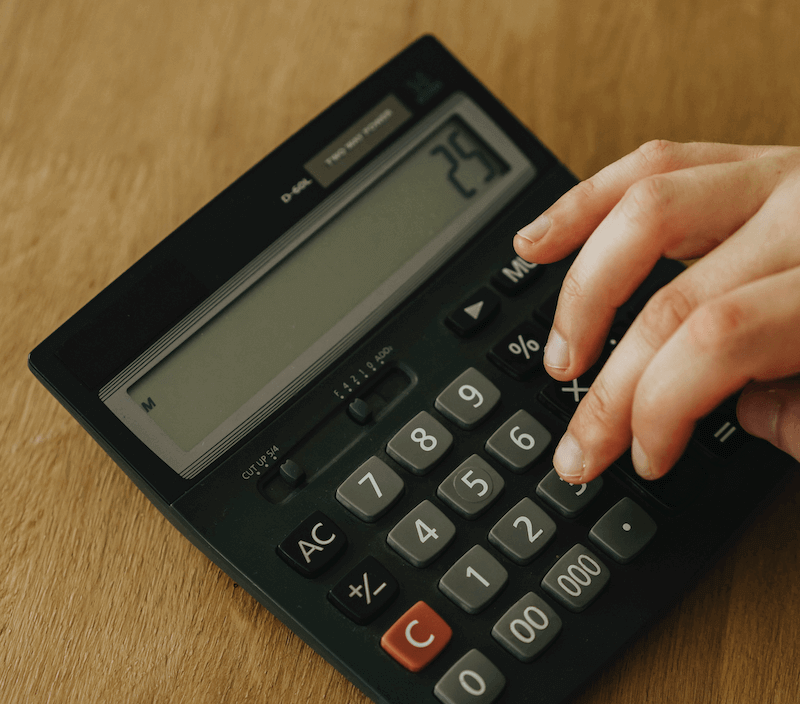
Each of the three main Credit Reference Agencies (CRAs) will have a different way of working out what your credit score is. This means that there's no one number when it comes to your credit score, but a variation of your score depending on the CRA. The three credit reference agencies are Experian, Callcredit and Equifax.
How Do Personal Loans Affect Your Credit Score?
Personal loans can affect your credit score at different stages, from the initial research phase all the way through to debt consolidation.
If you are searching for a loan, be aware that even these initial searches have the potential to impact your credit history as many of the details you will have to enter include things such as your earnings and level of debt. Additionally, any loan applications can impact your credit score, particularly if the application is rejected.
Borrowers who can regularly meet repayments for their personal loans and who can effectively manage any debts can positively impact their credit score.
Some things are not included in your credit score, including student loans, rent, bank account balances, medical records, transactional data (what you spend your money on) and criminal records.
How Does Applying for a Loan Affect Your Credit Score?
When you apply for a loan, any credit agencies that you are working with will be notified as they will need to assess your financial situation and ensure that you can afford loan repayments.

Overall credit history tends to carry more weight than a single loan application in terms of how much it affects your credit score. Thus, if you have a generally good credit history (i.e. you meet repayments on time and effectively manage your debt), this will most likely supersede any impact made by a new loan application.
Could a Personal Loan Boost Your Credit Score?
If you take out a personal loan and regularly meet repayments on time, it is possible to boost your credit score as it shows you to be a responsible borrower.
However, it should be noted that many people need to take out a personal loan due to being in poor financial circumstances. If this is the case, it may not be advisable to take out a personal loan in order to build credit.
How Can I Use a Personal Loan To Build Credit?
There are different ways that personal loans can be used to improve your credit scores:
- Increase your credit history - the longer you have a credit account, especially one which shows responsible debt management, the better it looks to lenders. In order to start building your credit history, taking out a personal loan and meeting all payments on time can be a good starting point.
- Improve / maintain credit history - payment history represents 35% of your credit score so has the potential to make a big impact. If you take out a personal loan, regularly making monthly payments on time will positively boost your credit.
- Reduce your credit utilisation ratio - your credit utilisation ratio is the amount of revolving credit you are using relative to how much you have left. You can reduce the amount of revolving debt you owe by paying off credit card debt with a personal loan. This will lower your credit utilisation ratio and raise your credit score.
- Diversify the type of credit on your credit report - different types of credit can benefit your credit as credit mix represents approximately 10% of the credit score. Taking out a personal loan can help strengthen your credit and diversify your profile.
Can Certain Types of Personal Loans Help To Build Credit?
Any personal loan paid back on time can have a positive impact on your credit. However, a couple of loans are specifically designed to build credit.

1. Credit-builder loans: Credit-builder loans are good for starting a credit score from scratch or if you have poor credit. They help borrowers start to build a positive payment history and are usually for smaller amounts of credit. The borrower makes deposits payments into a dedicated savings account and will receive the money after the repayment period minus any interest or fees.
2. Debt consolidation loans: Debt consolidation loans could be a good option for those who have multiple debts with high interest rates. You can take out a debt consolidation loan in order to streamline your debt and leave you with just one loan to manage. Depending on your credit score, you may also be eligible for a lower interest rate.
This could help your credit in the long-run as not only does it make your payments easier to manage, on-time payments can help to boost your credit score over time.
3. Secured personal loans: Secured loans require the borrower to put forward collateral to secure the loan. Although the money can be used for any purpose, if your goal is to build credit, a good strategy is to save the money and repay the loan over time.
How Quickly Will a Loan Build Credit?
Building credit using a loan is not a fast process. Usually, it takes at least six months to generate your first credit score and much longer in order to establish a good or excellent score.
Should I Take Out a Loan To Build Credit?
A personal loan can cause a slight hit to your credit score on a short-term basis but regularly, timely payments can quickly boost it back up and positively impact your credit. The strategy of taking out loans in order to build credit will only work if you can afford to repay the loan on time.
If you default on the loan or make any late payments, your credit score will be negatively impacted and that can be hard to come back from. Not only can it detrimentally impact your credit score, it can reduce your borrowing power for other lines of credit in the future.
Can You Get a Mortgage With No Job if You Have Savings?
You may still be able to get a mortgage with no job, but it is more difficult. If you can prove to a lender that you have a sizable savings account, lots of assets or an alternative source of income, it may be possible.
Do Mortgage Lenders Look at Savings?
Mortgage lenders will look at any depository accounts on your bank statements; this includes any checking and savings accounts as well as any open lines of credit.

Thus, if you do not have a regular income from a job, lenders will still take into account your savings to assess mortgage affordability.
If you want to highlight your savings to mortgage lenders, experts recommend showing lenders that you have enough money saved; the equivalent of six months or more of pay stubs.
Can You Get a Mortgage if You Have No Job?
If you are currently unemployed, whether by choice or after losing your job, it may be more difficult to secure a mortgage. Lenders typically look at a borrower’s salary in order to assess how much money they are willing to loan. Within this, many lenders will even specify a minimum income.
However, some mortgage providers are more flexible than others in how they define “income”. If this is the case, these lenders may accept savings accounts as long as you can prove that your monthly income is sufficient to meet payments.
If you are unemployed, you will usually need to have a good credit history as well as be able to put down a decent amount of down payment in order to secure a mortgage.
Often, no-income loans, including mortgages, will come with higher interest rates and you will not be able to borrow as much money.
How Do You Qualify for a Mortgage When You Are Unemployed?
If you are applying for a mortgage and cannot prove employment, you will need to be able to demonstrate some source of regular income which could include savings. Lenders will also require a good credit history. Regardless of whether you are unemployed by choice, such as taking retirement, or have lost your job, you will need to prove to any lender that you can make regular payments on time.

One way that you may be able to qualify for a mortgage whilst unemployed is by having a co-signer; this might be a relative, spouse or friend. This co-signer will need to be employed or have a high net worth. Co-signers make the mortgage less of a risk for the lender as they are securing the loan with their income and credit history.
Other Ways To Qualify for a Mortgage if You Have No Job
There are many ways you might be able to qualify a mortgage even if you are not in full-time employment:
Part-time employment, freelance work or gig economy experience - if you are able to demonstrate that you are on an employer’s payroll on a partime or freelance basis, it will help your case with lenders as long as the income is sufficient to qualify for the mortgage you are trying to secure. This should present to the lender that you have been able to generate a fairly stable income and have been able to support yourself financially.
Diverse sources of income - if you do not have one full-time job but can demonstrate that you have more than one source of regular work, it can help present yourself as financially stable to any potential lenders.
Tax payment - showing lenders your tax returns can help verify your income, especially in the absence of regular paychecks.
Exemplary credit record - if you do not have traditional employment, a good credit score shows lenders that you are a reliable borrower and can comfortably meet your financial obligations regardless of your job situation.
Boost your net income - lenders are most interested in your net income and look at this to see if you can meet payments.
Increase your down payment - the higher the down payment you are able to put down for a property, the less a lender has to put forward and the less risky it is for them.
Undergo a pre-qualification or pre-approval - if you get pre-qualified or pre-approved before bidding on a house, it can help dispel any concerns for the seller.
How Can I Demonstrate Eligibility for a Mortgage if I Have No Job?
In order to take out a loan when you are unemployed, you will still need to demonstrate how you will be able to meet repayments and show lenders that you have a solid credit history.

If you are unable to prove employment, you will most likely need to share the following information:
- If you have missed any utility bill payments
- How much credit you currently have available
- If you have previously been declined for loans and how many times
- If you are on the electoral roll
Lenders will only accept mortgage applications for the unemployed if they can be sure that you are able to meet monthly repayments. Demonstrating that you are able to make payments on time and can manage debt in a responsible manner will make you more likely to qualify for a loan.
Can I Buy a House Without a Mortgage if I Have No Job?
Although mortgages are the most common way to purchase a home, there are other ways to purchase a house without the need to take out a loan.
Cash Purchase
If you are fortunate enough to have enough funds available to purchase a house outright, you may be able to save enough for a cash purchase. This is especially possible if you are a two-income household and can live comfortably off a single income for a few years.
In the case that you have no job, you will need substantial savings in order to afford this option or will need to be buying a house with someone who has enough income to support you both for the foreseeable future.
Sell Your Home to Purchase Another One
If you are already a homeowner and want to downsize or change living situations, you can sell your existing property and use the profit to purchase another home. This is only really a possibility if you have plenty of equity in your current home.
This can be a great option for those looking to downsize or move to a more cost-effective area where you could get more for your money.
Use an Investor
If you are looking to buy a house or property as an investment property, you may find it difficult to secure a mortgage, especially if you have no job.
Getting an investor to cover the expense of buying and renovating the home can be a good option. Many investors will be able to provide cash up front in order to buy the property and pay for any home improvements. Once the property is flipped and sold, you will split the proceeds with the investor.
Is It Possible to Buy a House Without a Mortgage?
When people start to consider a house purchase, the first port of call is usually looking into mortgages; however, it is not strictly necessary to take out a mortgage in order to buy a house. In some cases, it is possible to buy a house without entering a long-term mortgage agreement. Here we share the different alternatives available for those looking to buy a house.
Alternatives to Buying a House Without a Mortgage
If you are looking to buy a house, you might be able to enter the property market without the need to take out a mortgage. Here are some alternative methods for buying a house:
- Seller financing
- Rent to own
- Borrow from a retirement account
- Borrow from your parents or relatives
Seller Financing
Seller financing, or owner financing, is when the homeowner becomes the mortgage holder. This means that the owner will sell to you directly and will finance your purchase. Rather than pay monthly payments to a bank, you will pay them to the owner directly.

As this is an agreement before owner and buyer, it is less of a formal arrangement than a mortgage. Subsequently, it is recommended that any transactions should be recorded and that a Real Estate Purchase Agreement should be drawn up. This agreement is a formal document that will detail the sale and outline the payment details. In the majority of cases of seller financing, the seller will not transfer the property title until they have received the final payment; at this stage, they will use a Warranty Deed to transfer the legal ownership into your name.
This type or arrangement can be difficult to find as sellers are typically reluctant. However, that being said, some are open to it, especially if they have already fully paid off their mortgage and don’t need immediate cash from the sale.
Rent to Own
Renting to own is a good option for those who cannot qualify for a mortgage or who are unable to save for a down payment. In a rent to own arrangement, you will pay the owner an option deposit; this means that you will have the option to purchase the home after you have rented it for a fixed period. This period will vary between sellers but is usually between 1 to 3 years. During this time, the owner will use a proportion of your monthly rent to put towards the purchase if you choose to buy the home at the end of the Lease Agreement.
Rent to own properties can benefit both sellers and buyers. It benefits buyers as rent to own properties are often an easier sell. Also, it allows buyers to continue to build their credit score whilst not worrying about wasting their money on rent. Should you decide to purchase the property at the end of the Lease Agreement, the option deposit and rent credit will have already made a huge contribution towards the purchase.
Borrow From a Retirement Account
If you have put money aside into a retirement account, you could use these funds to purchase a house. It is essentially a way of borrowing from yourself by using the set-aside money earlier in life. From that point of view, it saves on the long-term monthly payments of a mortgage and means you avoid the issue of accumulated interest. However, this method also comes with a price.

If you are below a certain age and want to withdraw money from your retirement funds or other savings account, you might have to pay a penalty on the withdrawal and also pay taxes. Additionally, if you lose your job, you will need to repay the money within a 60 day period.
Borrow From Your Parents or Relatives
If your family has money sitting around which they are happy to lend to you, this might be a good alternative to taking out a mortgage. It means that you will not enter a long-term mortgage contract with obligated monthly repayments over many years.
If you want to borrow money from parents or relatives in order to buy a house, you can hire a lawyer and get the loan agreement written up. You may also need to check with an account that the loan does not appear as a gift, in order to avoid the gift tax.
However, this type of “loan” is not always recommendable as it can put a strain on familial relationships
Can I Buy a House With Cash?
It is possible to buy a house with cash if a buyer has enough of their own funds to cover the full purchase price of the house, removing the need to take out a loan. This cash could come from a number of places including the sale of another property, savings account or investments.

Buying a house with cash can be advantageous for the buyer as it means they are not trapped by the financial obligations of paying off a long-term mortgage. It can also speed up the process as cash transactions are typically faster than taking out a mortgage.
What Are the Advantages and Disadvantages to Buying a House With Cash?
There are a lot of benefits to the cash purchase of a property. For the buyer, if they are able to offer the full value in cash, it may make them more appealing to sellers. Often, sellers prefer to sell to cash buyers because they do not have the risk of external financing falling through at the last minute. For cash buyers, it negates the need to be approved for a mortgage means they are ready to buy.
For this reason, cash-only purchases tend to be much faster than awaiting mortgage approval. Thus, sellers who are in a rush to close could be far more willing to work with a cash buyer than entertain the possibility of a buyer with a mortgage.
Another positive of a cash purchase is that the buyer is able to skip the costs and fees associated with mortgages including mortgage insurance and interest rates. This could save them a great deal of money in the long-run as it means they are free of the typical financial long-term obligations of a mortgage (typically 30 years). This saved money could be used to fund future purchases.
Cash purchases typically mean lower closing costs. When taking out a mortgage, there will be certain service charges at closing such as an application fee or lender fees. With cash purchases, there are no lender-related closing costs. On top of that, the closing process tends to be far simpler and faster, as you do not have to wait for mortgage approval and there are fewer steps to the process.
With a cash purchase, unlike mortgages, the home is yours upon purchase. For mortgages, if you miss a monthly mortgage payment for any reason, you are at risk of losing your home. However, for cash purchases, you own your home outright and there is no risk of you losing your home to foreclosure.
On the other hand, there are some downsides to paying for a house in cash. One of the major downsides is that your money is completely tied up in the house meaning that you have no liquidity. For example, if you find yourself in a difficult financial situation, it is difficult to access any of the money that is tied up in your property, despite it being an asset. If you have a mortgage, you will only be making monthly payments which leaves you with available cash should you need to cover any other expenses.
Even though you do not have monthly mortgage payments if you are a cash buyer, you still have many other household-related expenses that you will be expected to pay, including homeowners insurance, property taxes and utility bills.






